S2:E54 Jess Cress - Diversity and Inclusion, Why It's been ignored and Why It Shouldn't Be Anymore - PODCAST TRANSCRIPTION
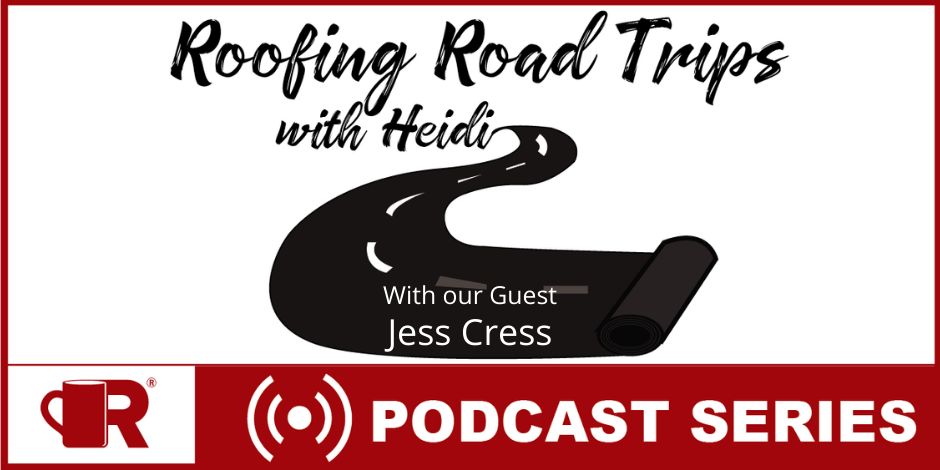
Editor's note: The following is the transcript of an interview with Jess Cress of BoneDry Roofing. You can read the interview below or listen to the podcast here.
Speaker 1:
Welcome to Roofing Road Trips with Heidi. Explore the roofing industry through the eyes of a longterm professional within the trade. Listen for insights, interviews, and exciting news in the roofing industry today.
Heidi Ellsworth:
Hello, and welcome to another Roofing Road Trips from Roofers Coffee Shop. My name is Heidi Ellsworth, and I am a partner with Roofers Coffee Shop. And today I am on the road virtually all the way to Georgia, and it's pretty exciting. I have been looking forward to this podcast, well, since we set it up, and that's been a lot of time, because we've been doing a lot of these lately. But I have today Jess Cress of Bone Dry Roofing Company. Jess, welcome to the show.
Jess Cress:
Thank you, thank you.
Heidi Ellsworth:
I have been so excited for you and I to visit. This is going to be a lot of fun today.
Jess Cress:
Yeah, I'm looking forward to it.
Heidi Ellsworth:
So you have been involved with National Women in Roofing, and that's what we're going to be talking about today. We're going to be talking about you, your career in roofing, and then we really want to talk about National Women in Roofing, and the new diversity equity and inclusion committee that you are a co-chair of. But before we get there, I would love for you to share a little bit about your history. How'd you get into roofing? Tell us a little bit about Bone Dry. We just want to hear all this.
Jess Cress:
Yeah, of course. So I think I'm a lot like a lot of people that are in our industry. I just kind of fell into it. They say that asphalt gets into your blood. So it just happens. We all fall into it, and we get there. So I fell into it. In Jacksonville, Florida, I was working with SRS Distribution down there at Suncoast Roofers Supply. And I was actually going to school for pediatric psychiatry, and I was going to take my minor and use my minor in music to treat autistic children, other children with other different medical elements. Just, I think music is a great therapy, and there's a lot of treatments that revolve around it.
But I kind of ran into... So I ran into an issue, and I realized very quickly that I'm not tough enough to do that kind of work. I don't have it in me. So when I left that field I just really focused on roofing. And I transferred from Jacksonville to Atlanta, and I was working with SRS there doing some acquisitions. And then I realized really quickly I had no clue what contractors dealt with on a daily basis. I was like, I'm inquisitive, let's work for a contractor. So I found two women in Jacksonville that I'd actually sold products to, and they run and operate a roofing company. And it's a specialty roofing company, so it's tile, slate, and copper and waterproofing. And I was like, "Hey, do you guys have anything?" So they took me on, put me out on the roof for the first year and a half. It was probably the best instruction I think that I've had in my career thus far. And they taught me everything from using a tear off shovel to back end deductions, and take-offs and everything. So that was great.
And then when I left there in 2019, I realized it was time for me to come home. My mom needed me home. So I just started interviewing all across North Georgia. And it was really important for me to find a company that kind of fit me, but also was a company that I would believe in. And out of a ton of interviews I accepted a position with Bone Dry in June of last year.
Heidi Ellsworth:
I love Bone Dry. And I love who you work with, who hired you there. So tell us, tell us about their company and what you do in there now.
Jess Cress:
So Bone Dry is a commercial and residential roofing company. We've got three divisions, the commercial, residential, and an R&M. And then we also have three locations. We've got one in Athens, Georgia, and then one in Charleston, South Carolina, and another one in Saint Simons Island.
Honestly, Bone Dry makes me happy, and it was because I had my first roofing a-ha moment there. I was walking down the halls on my first day, and there's these huge pictures of all of the projects that they've done throughout the years. And I remember working clay tile roof on million-dollar homes right on the beach. And I was walking through this hallway, and I just was looking around, and I'm like, there is nothing that I have touched that is as amazing as this work. And I had my a-ha, I am part of something bigger moment with them.
And then just really what I love most about Bone Dry is that the men and women that are in that company, leadership is the epitome of leadership. The owners are present in everything. Every meeting, every celebration, every yay moment, every let's-do-better moment, they're there. And then it's just all faith-driven men and women who really, really believe in honing their craft, and having pride in it, and always doing the best of their ability. And if something goes wrong, they're just like, "Okay, let's fix it." And it just, it fits, it fits perfectly. And so I love it there. And then I-
Heidi Ellsworth:
And what are you doing there? What's your job? Tell us-
Jess Cress:
So what I do there is I'm the special project manager, marketing person and the drone pilot. So special projects means process improvement. So that's great, because I get to help out everywhere. I'm not really a box kind of girl. You can't have me doing the same thing over and over. It doesn't work.
And with that aspect of my job this past year laying a, or led a CRM software implementation build-out throughout the entire company. And we got it done in one year. And I'm just really proud of that.
And then marketing, of course, social media, SEO, SEMs, blogs, Google, all of that stuff. I we have a great marketing team.
And then drone pilot, which is probably my favorite part. I get to go out and take pictures, and show the guys that worked on something the bird's-eye view of what they've gotten, what they did. And then I get to put them on the wall and be happy about it. Because I'm like, "Hey, I took that picture."
Heidi Ellsworth:
I love that. Drone pilot. I think that's... You know what, Jess? I had no idea you did that. That is so cool.
Jess Cress:
Yeah, you have to take a whole federal test now to do that.
Heidi Ellsworth:
It's not easy. You have to make sure you don't run anything, and getting all the pictures right. I mean, that is cool. Plus you get out, and you get out on the jobs, and you get to see all the beauty that Bone Dry Roofing is doing. I mean, it's so cool that you can do all those different things, from technology to the marketing, to being out in the field, and processes. That's really cool.
So the other thing that's awesome about Bone Dry is that they really encourage involvement. I know Chad has been so involved with the National Roofing Contractors Association for many years. And you got involved with National Women in Roofing. Just share a little bit about how you got into National Women Roofing and some of your experiences.
Jess Cress:
Sure. So yeah, Chad's great about involvement, and we have a lot of people in the company that are in GRCA and stuff like that as well. But National Women in Roofing is actually something I was introduced to in my last job. And the owner of the company got to do all of the NWIR stuff. And I was like, "Well, I want to do it," right? So when I took on my new role in my new position at the new company I was like, "Hey, my time to shine. I'm about to hop in there." And I signed up, and I just started getting involved, like social posts, joining in on meetings, webinars, series that they were doing. And I heard them mention of the DEI Committee, and I just immediately raised my hand. I was like, "Hey, take me. I want to help." And that's been awesome thus far.
Heidi Ellsworth:
There's been so many goals over the last seven years with National Women Roofing. Getting councils going, getting the National Women Roofing Day. But one of my deep, one of the goals that for both Jennifer Stone and I have been, we want this diversity. We want to take it to the next step. And you and [Ray July 00:00:09:50], your co-chair, you guys really... It's one thing for us to say it, but it's another thing to have people step up and say, "Yes, we get it, and we want to make it happen." So talk a little bit about how that got started, about your conversations with Jennifer and, and Ray, and just share a little bit of that, the committee of where you think it's going, and kind of where it's been. Just a little bit bigger picture.
Jess Cress:
Yeah, for sure. So, like you said, I think we all understand that DEI has been the brainchild of NWIR for quite a while. And I think it probably came from the fact that National Women in Roofing is the safe space for the minority group of women. And then maybe over time, we recognized very quickly that there was a lot more involved in that minority than just women. And I think that with that thought and those conversations that started coming up, when Jennifer had mentioned it, I believe it was at the NRCA event last year that she had briefly mentioned it, and then it was brought up on another call.
And then I just reached out to her. I was just like, "Hey, this is something that you had said you were wanting to do. If you need my help with it, let me know." And then she kind of just responded. She was like, "It's something we're working on. We're trying to get there." And then one day she was like, "Hey, can you people hop on this meeting?" And she just asked us. She was like, "This is what I want it to look like. Are you okay with it?" And I'm honored that she chose me and Ray to be co-chairs. And then Meredith I also know very personally. She's awesome as well. And I don't think she could have picked three people that are more like-minded to lead the first DEI committee. So that's how it got started.
And then our main goal for the end of 2020 has basically just been to fill out that committee, kind of get a presence. And we've done pretty well with that. We have liaisons at all the other committees for NWIR, just making sure that what we're focused on and diversity, equity and inclusion are included in everything that NWIR is doing. So we have someone sitting on those other committees, and also coming back to us, and being able to have those conversations and make the tough remarks when they're necessary. So thus far that's what we've been doing, and we're really pumped about it.
Heidi Ellsworth:
I love how you started it too on the fact that one of the first goals of the committee was to get committee members on to all the other National Women in Roofing committee. So mentoring and meetings, and all the different recruiting, all the different committees. Because so often we just don't know what we don't know. And to have people there who are just focused on, okay, do we have diversity front and center as we are making all these initiatives and plans? I think, what a great way to start.
Jess Cress:
It's been exciting, and we have great, great people too. So that's good.
Heidi Ellsworth:
So what are some of your plans for 2021 with this group? What are you hoping... What are some of the things, the goals that are coming out that you want to accomplish?
Jess Cress:
So our main goal is education, but we're going to kind of try to go about it in a different way. We're definitely going to push the envelope a little bit. DEI is a touchy subject. It does make people uncomfortable. But you kind of have to realize your un-comfort comes from the fear of the unknown, right? So I'm afraid of a dark room. I'm afraid of deep ocean water. It's not because deep ocean waters and dark rooms are scary. It's not because they're bad. It's because I don't know what's in the deep water, and I don't know what's in the dark room, right? So I'm afraid of those things.
Jess Cress:
And I think with our goals, what we're trying to do is really focused on celebrating people that are most unlike ourselves. We really want to celebrate differences and diversity. And I think with that, and the way that we're trying to accomplish it, that once we start celebrating those differences people are going to start learning and getting a little more knowledge of those differences. And it'll kind of alleviate some of that fear, because they're going to be able to understand a little better. And then as an industry as a whole we'll be able to kind of include more people. We're more apt to pull people unlike us closer to us, if we understand those people. That's our main goal.
Heidi Ellsworth:
I love that, I love that. I think just getting in the same room and just learning about each other, so often we don't even take the time to ask questions, like what's it like in your world in Oregon, right? Is it all rednecks in a very nice way? And so people look at me. I'm the Birkenstock gypsy kind of woman. But when we sit down and talk and visit, no matter where we're from, and so many parts of the country, and so many rich cultures, we become so much better in time and space. I mean, to me, every time I get to be with you and Ray and Meredith and Jennifer, and the other like 10 million Jennifers we have in our National Women in Roofing, I just, I walk away every time as a better person.
Jess Cress:
That's awesome. Yeah, I think that everybody has kind of a predisposed disposition of who a person is based on what they look like when they first meet them, or what is their accent when they say hello. Or there's a ton of things that someone might think. Pioneer wagons in Oregon. And they may think moonshine and Georgia. But it's the diversity. If we really pay attention to it, it comes in gender, age, religion is a big one. And then you cross some crossroads where religion directly contradicts with a certain kind of inclusion.
So what we're trying to do is definitely educate everybody, kind of alleviate some of that unconscious bias, and then be able to, as a human, as a being on the planet, be able to accept people that are different. It doesn't always mean you have to agree. Acceptance and agreement are completely different things. And I just think as people, if we try a little bit harder to have those, a little bit more acceptance, everything's going to go much, much further.
Heidi Ellsworth:
I think so too. And the other word that I love in there is respect. Just give everyone respect. So often people become, they just are not respectful to that person as a human being, someone who has a mother and a father and a brother and a sister, or not. You know what I mean? And it's, so I'm always like, if you just respect everybody at the same level, I think that makes such a huge difference. Lead with kindness. And I think part of that respect issue for me too is inequity. And I love the fact that all of you, there's a lot of diversity and inclusion out there, but to go with diversity, equity and inclusion, that really made a statement that everybody should be getting paid the same for the job that they're doing. Talk a little bit about that, Jess.
Jess Cress:
So equity as a whole, equity and equality are completely different, right? So equality is everyone's the same. Equity is celebrating a difference and valuing that difference, and elevating someone because of that difference, and them being included because of that. And I think using that word in our title has definitely kind of laid the foundation of what we're really trying to accomplish.
I think if you really get down to the bottom of it, all of us as people, we're really just trying to figure out who's good and who's bad. And if we can realize very quickly that none of these things, none of these descriptive words or any of that stuff has anything to do with the [inaudible 00:18:58] of if you're good or bad, and you can celebrate the equity of that person, I mean, it's going to be really, really, really conducive to the growth that is already happening, and the evolution of roofing altogether.
Roofing is changing at a rapid pace. So as soon as we can celebrate those differences, and trust the equity and inclusion of each individual, that change is not going to feel so much like a bottleneck. If you get what I'm trying to say.
Heidi Ellsworth:
No, I agree 100%. And you say this all the time, and actually, everybody on the committee, and I've heard it, and I love it, is that if we want to attract more talent to roofing, if we want to attract that next generation to roofing, to see how cool of an industry this is, we need to have it be a rainbow, or we need to have all types of people that, you're right, that we celebrate the differences. Because by bringing everyone together and really letting everybody shine in their own right, then everybody else will be attracted to this industry.
And that's what I love, what I've been seeing, that I think that's the changes that are happening so fast, is the more progressive, I would say, thought leaders in the industry, like you, like Bone Dry, like so many who are involved, they're just doing it. And now, listen, you're the one who is recruiting the talent. You're the one who's getting the contracts. You're the one who's... Because of that great diversity in your company.
Jess Cress:
I mean, if you think of the industry or all of us as basically just like-minds, so if you strip away everything else and you think like-minds in our industry, the talent shortage will probably go away. Some of the issues that we're facing as an industry and trades as a whole will probably alleviate themselves. There's just a lot of untapped potential. And I would think that a lot of it has to do with the way things have always been, and where we're headed. And 2020 definitely pointed that out, not just in our industry, but in our country as a whole. I think it's bottle-necking, and we're getting there. And I'm really happy that we as an industry are taking that step and that leap forward to try to get a handle on it and get ahead of it.
Heidi Ellsworth:
Yeah, I agree, I agree. And we're seeing the need. We know it has to change. And so let's talk a little bit about that 2020, and the changes that the pandemic has brought on. I mean, I'm crying right now every single day with what we're dealing with with this pandemic, but there have been some things that have come out of this as a culture that I think is going to help us into that next, maybe, getting out of that bottleneck a little bit. What have you been experiencing that way, Jess?
Jess Cress:
So COVID is awful, right? We all agree. It's the worst thing that could have possibly happened to us, and especially in such... I mean, just the times are so volatile right now. For this to be laying on top of it, it's a lot. And I think as a country and as a world, we are all definitely looking in the mirror and facing some hard truths because of it. But for our industry specifically, I would say that COVID has brought some good things, and maybe to a lot of people. So I always try to see the good and stuff. Every situation. I mean, I've had a broken knee, and I tried to find the good in it.
But I think some of the good that's come out of COVID is the amount of time we're spending with our families. And it's recognizing the amount of time that we weren't spending with our families. Another thing that's good that's come out of this virus is us recognizing the heroism of our frontline, our first responders, that we would usually consider firemen, police officers, military personnel. But now they're in scrubs. They're wearing surgeons' masks and hats. And we're realizing the importance of our physicians, nurses and medical staff.
But something else that I think good that has come out of coronavirus is that all trades are now being shown in a light that we've never been shown before. Trades are, we are the epitome of a reacted fix, right? So everything is a non-issue until it is an issue in a trade perspective. And I think with people being at home all of the time, looking at their roofs, hearing the water hit the top of their sheet rock, the slow leaks that you would never find, trees falling through the roof. I've never heard a single roofer say, "I'm sorry a tree fell through, and your roof is unsafe for your family and your children, but I can't come help you because of coronavirus."
Now, there's a lot that has changed. We don't have that personal interaction with our customers. Our materials are a little bit slower of getting in, and there's a lot of stuff going on. But I think that as a whole, as a nation, we are maybe redirecting our focus on those essential services that we may not have paid a lot of attention to in the past. And I think that our industry is gaining a little bit of respect for our bravery during these times as well.
Heidi Ellsworth:
I think so too. I think that's so well-said. That's beautiful. We're all focused on taking care of each other, because we have to. And that refocus, I think, really is going to be one of the shining lights that comes out of this.
Jess Cress:
Definitely.
Heidi Ellsworth:
So we're getting to the close of our podcast here, but before we go, what I'd like to really do is just... I have two things, actually. One, how can people find out more about the DEI? And also, how can they get... You and I talk about this all the time. I am constantly looking for education. I want to be educated on this. I want to be the best person I can be. How do people do that? What's the first steps for them to get involved, and to continue to educate themselves?
Jess Cress:
Well, the first step is always internal inventory. So you have to be really, really honest with yourself, right? Everybody thinks I'm not a racist because I have a Black friend, or I'm not homophobic because I go to brunch with that gay guy. People say these things all the time, and that's not what that means. You can't use that as you're a [inaudible 00:26:41]. You have to really, really do an inventory and say, "Would I feel comfortable as a white female walking into a room of Black men, and feel comfortable in that situation? Would I, as a straight male, walk into a room of gay men and feel comfortable in that situation?"
So if you really do a very honest inventory with yourself, and you just write it down, then you can start researching. There's LinkedIn Learning. There's ton of DEI material online. At this point, with everybody realizing the issue, it's becoming more and more available. You can do comfort tests. You can do all kinds of stuff to kind of test you and see where you are. I say that's the first step. Then start learning. And when you start learning, start going and finding people most unlike you and having conversations with them. And then when you're done doing that, get involved and help the next person. And then hopefully they'll help the next person. And then as all of that grows, we become more and more comfortable with each other. Everything's going to get a lot better.
And with that DEI committee, what we're trying to do is get some of that education headed and put out in front of people also. And the way to get to us, you can always go to the National Women in Roofing webpage, and click on their committees. You can get all of our contact information there. And then I am always available at any time. My team profile is available on the Bone Dry Roofing Company website. My name is Jess Cress. You could click on there and get directly to me from there as well.
Heidi Ellsworth:
That is awesome. Well, I know I have learned so much from you, and I am so thankful for our friendship. And I am just excited. I say let's bring it on. And I have to tell you, one of the things, I love that really the whole thought of looking inside of yourself that you just shared, Jess, that is awesome. And I would add one thing to that, and it's take that first step, because for me, I can remember the first time being from little rural Oregon city, then I went to San Francisco. And that first time of walking out the door and having all this, first of all, this huge city, and second of all, all these people. I'd never been around that many people, and I was scared. I was so scared. And it was all about just taking that first step and walking out and smiling at somebody. And sometimes it is as simple as that. And then take the next step, and then the next step. And then pretty soon you're not scared anymore.
Jess Cress:
Yeah, that's how it works.
Heidi Ellsworth:
It really is, it really is. And I think we're going to... And this next evolution of National Women in Roofing is really going to be, it is really going to be the difference for roofing professionalism, for roofing respect, and for everything else. So I want to say to you, and Ray and Meredith, thank you so much for taking the leadership and making this possible.
Jess Cress:
We are honored, honestly.
Heidi Ellsworth:
It's going to be a fun year. 2021, here we go.
Jess Cress:
We're going to get it.
Heidi Ellsworth:
I love it. Well, Jess, thank you so much for being on this Roofing Road Trip. This is the kind of stuff that's really changing the industry. You are the next generation that's changing this industry, and thank you for sharing all of that. And we'll have you back again, because I want to get some updates.
Jess Cress:
Awesome. Thank you for having me and speaking with me.
Heidi Ellsworth:
And next time we'll get Ray and Meredith on here too. Maybe we'll just do all of us chatting. That'd be great.
And I want to say thank you to everybody for listening today. Thank you for being a part of this, being part of these Roofing Road Trips with me, and please watch all of our watch, listen, learn, all of our educational pieces on Roofers Coffee Shop under the read, listen, watch initiative, including podcasts, webinars, and all of our partner videos and eBooks. Thank you so much. Thank you, Jess. And everyone out there just have a great day.
Speaker 1:
Make sure to subscribe to our channel and leave a review. Thanks for listening. This has been Roofing Road Trips with Heidi from the RoofersCoffeeShop.com.

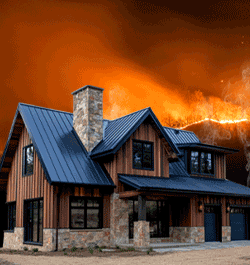







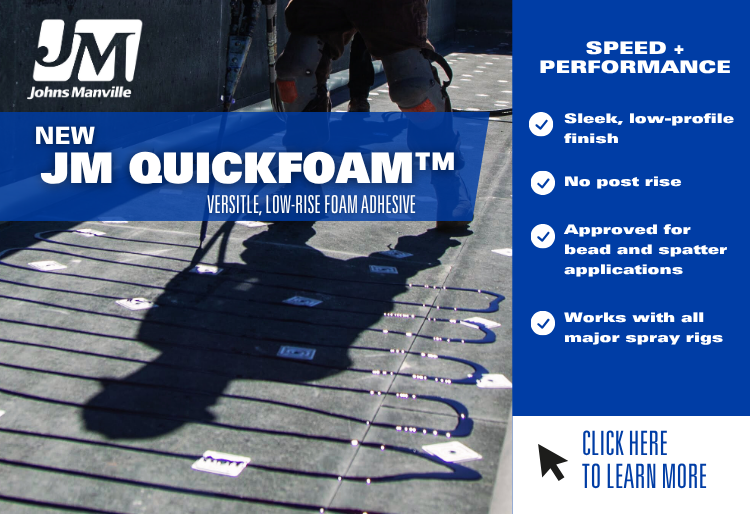



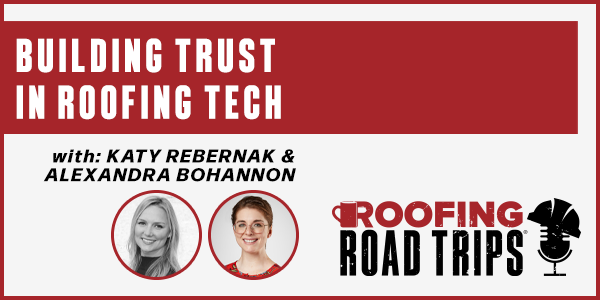
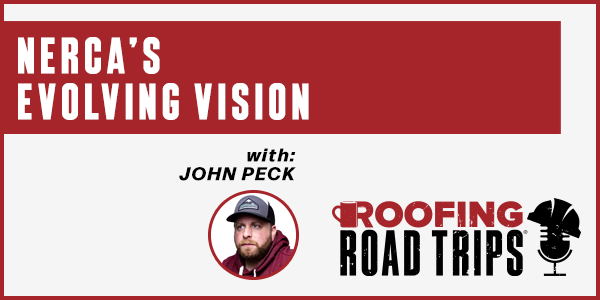
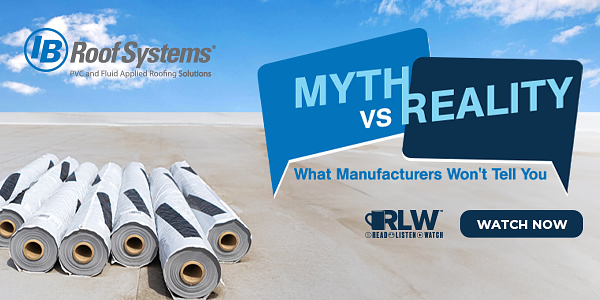

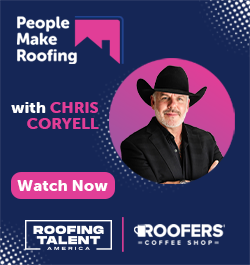




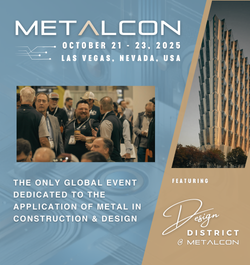
Comments
Leave a Reply
Have an account? Login to leave a comment!
Sign In